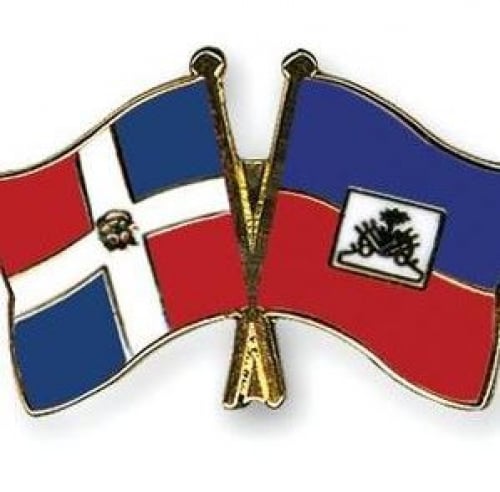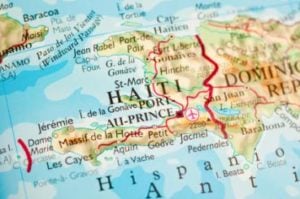 “There is no question that it is racism, and it’s absolutely deplorable,” declared Democratic strategist Maria Cardona on NPR’s “Tell Me More,” referring to a Dominican Constitutional Court’s ruling, on Sept. 23, 2013, that denaturalized four generations of Dominican citizens, virtually all of them of Haitian descent. “And I do think that the United States and the international community should chime in,” continued Cordona, “And be like, look, you know, how would the president of the Dominican Republic feel if we passed a law here that would say that the sons and daughters of Dominicans do not have U.S. citizenship,” added the CNN and Mamiverse.com contributor.
“There is no question that it is racism, and it’s absolutely deplorable,” declared Democratic strategist Maria Cardona on NPR’s “Tell Me More,” referring to a Dominican Constitutional Court’s ruling, on Sept. 23, 2013, that denaturalized four generations of Dominican citizens, virtually all of them of Haitian descent. “And I do think that the United States and the international community should chime in,” continued Cordona, “And be like, look, you know, how would the president of the Dominican Republic feel if we passed a law here that would say that the sons and daughters of Dominicans do not have U.S. citizenship,” added the CNN and Mamiverse.com contributor.
The Constitutional Court ruled, by an 11-2 decision, the provision on citizenship in the 1929 Dominican Constitution that recognizes as a citizen anyone born in the country, should not apply to the children of parents who were not “legal residents” at the time of their birth, on the basis that their parents were “in transit”. As a result, ordered the court, the Central Electoral Board (JCE Spanish acronym) must, within one year, identify and list all citizens of foreign origin from the Dominican Civil Registry and produce a new list, excluding more than 300,000 people the court considered were mistakenly registered as Dominicans. Furthermore, the decision, which cannot be appealed, proposed to administratively transfer the names of denationalized people to the foreigners’ books and, through corresponding embassies, notify foreign ministries to inform affected individuals. The global condemnations that followed the controversial ruling spawned across disciplines, as organized protests spilled onto both sides of the Haitian-Dominican border.

“I am incredibly disappointed in my country as a Dominican woman and a writer who’s been studying the African diaspora in the Dominican Republic for over seven years,” said freelance writer and filmmaker Alicia Anabel Santos to NPR’s host Michel Martin. “And then,” added Santos, “I was outraged because I could not believe that Leonel Fernandez – the then president of the country – could actually put in effect a law that would disqualify Haitians.” Similarly, the Haitian government– which had mostly been silent—expressed its strong disagreement with the ruling that stripped citizenship from the children of Haitian migrants. Nevertheless, the Martelly administration contended that it was, above all, a Dominican problem, before recalling Haiti’s ambassador to the DR for consultation.
For her part, Ravina Shamdasani, the spokesperson for U.N.’s High Commissioner for Human Rights, shared the concerns of Judges Isabel Bonilla and Katia Jiménez, the Court’s two dissenting opinions that labeled the ruling as a flagrant violation of the jurisprudence of the Inter-American Court of Human Rights and directly harms human dignity. Exhorting Dominican leaders to reverse course, Shamdasani said, “We urge the Dominican Government to take all necessary measures to ensure that Dominican citizens of Haitian origin are not deprived of their right to nationality in accordance with the country’s international human rights obligations,” in a released note. As Jimenez argued in her dissent, “the decision leaves the plaintiff and the thousands of other people affected by the effects of this ruling, in a state of judicial insecurity and, most importantly, stateless.” Equally critical, Bonilla pointed out,
“As a consequence of this restrictive interpretation and its retroactive application, this ruling declares the plaintiff as a foreigner in the country where she was born. And its failure to recognize her right to reside in her country of origin, which is where she has created social and cultural links, constitutes in itself a penalty she is forced to pay due to her parents’ migratory status.”
Moreover, the Open Society Justice Initiative (OSJI) also urged corrective actions from Dominican officials. “We are deeply troubled by this ruling,” said James A. Goldston, OSJI’s executive director. “It threatens a massive denationalization that will have a potentially devastating impact on hundreds of thousands of Dominican citizens,” he added. Goldston feared the ruling would render tens of thousands of people stateless, excluding them from basic state services, such as access to health care and education.
Reacting to a slew of international criticism leveled against his country, President Danilo Medina, who met with a committee of sons of Haitian descent over their stateless status, told U.N. representative Lorenzo Jimenez, the case was under the jurisdiction of the JCE, another Dominican government power in which he had no say. However, the strongest reaction came from former President Leonel Fernandez whose administration championed the new Constitution, which until 2010, declared that anyone born within its borders enjoyed Dominican citizenship, invoked national sovereignty in defense of his signature achievement. “This decision,” argued Fernandez, “If it were to take effect in the future, there would be no discussion, because it would have been an expression of the sovereignty of the Dominican State to determine who are its nationals.” Raised in New York City, following his parents’ migration to the US, the three-term former president perceived a legal problem, rather than a human rights disaster. During his reelection campaign, Fernandez routinely referred to Haitians studying in his country as invaders that ‘this time’ invaded without guns; a point Santos alluded to, during her intervention on NPR’s “Tell Me More.”
According to her, Dominican officials want to perpetuate the ethnic cleansing legacy of former dictator Rafael Trujillo. “And so,” said Santos, “I think that this is a huge, huge plot to kind of just remove the masses because there’s this fear of an invasion, right, this Haitian invasion,” emphasizing it went back to 1937 with the Parsley Massacre when Trujillo ordered some 20,000 Haitians murdered. “For me, it comes down to internalized racism,” she told Martin, adding, “It was really about a cleansing, you know, about whitening the race. And so I think that since then, there’s been this passing down of discrimination and racism towards Haitians.”